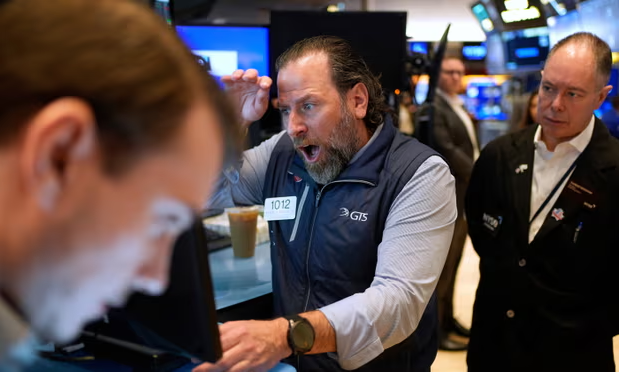
Global Economic Turmoil Following New U.S. Tariffs
The announcement of tariffs by President Donald Trump has unleashed a wave of uncertainty across the global economy. The U.S. government’s decision to impose a 10% universal tariff on all imports, effective from April 5, 2025, is being viewed as a significant step in reasserting American economic dominance. The tariffs are designed to penalize foreign imports in favor of domestic production, but they have also sparked widespread concern about escalating trade tensions.
In response, China swiftly retaliated with a 34% tariff on all U.S. goods, effective April 10. This tit-for-tat move has intensified fears of a full-blown trade war between the two largest economies in the world. As tariffs raise the costs of goods and services, many businesses will likely face higher operating expenses, which could lead to inflationary pressures both domestically and internationally.
Global Market Impact The immediate reaction from global markets has been dramatic. Stock markets across the world experienced sharp declines as investors rushed to safer assets like government bonds, which are perceived as lower-risk during times of economic instability. The selloff in equities was particularly severe in the U.S., where markets recorded their worst day since March 2020, when the world was grappling with the early stages of the COVID-19 pandemic.
Oil prices also took a hit, falling below $65 per barrel, as concerns about reduced global demand and economic slowdown weighed heavily on the market. A slowdown in industrial activity, particularly in China and other emerging markets, is expected to dampen global demand for crude oil, further exacerbating the decline.
Recession Fears Economists have already started to revise their forecasts, with a growing consensus that the global economy could be heading into a recession. As a result of the tariff hikes, global trade is expected to shrink, with supply chains disrupted and businesses facing higher input costs. This ripple effect may impact industries ranging from agriculture to technology, as countries seek to limit their reliance on each other's markets.
The IMF has issued a statement acknowledging the increased risks of a global slowdown, now estimating a 60% chance of recession within the next 12 to 18 months. If these tariffs remain in place or escalate further, the potential for widespread economic strain could become more pronounced. Developing economies, which rely heavily on exports, are particularly vulnerable, and there are fears that these tariffs could push already fragile countries into deeper financial distress.
Long-Term Consequences In the longer term, the tariffs could change the global trading landscape. Businesses might look to reshuffle their supply chains, relocating manufacturing to countries less affected by the tariffs, which could disrupt established trade patterns. However, this shift could take time, and not all countries will be able to adjust quickly enough to mitigate the economic damage.
Additionally, the U.S. decision to increase tariffs could strain its relationships with its allies. The European Union, Japan, and other trading partners may seek to retaliate or impose their own tariffs on U.S. goods, further escalating tensions. The ripple effects of these moves could lead to a fragmented global economy, with nations becoming more insular and less interconnected.
Looking Ahead While it remains to be seen how long the tariffs will stay in place and whether the global economy will enter a full recession, the early signs are concerning. Analysts are urging governments and central banks to prepare for the possibility of an extended period of economic turmoil, particularly as consumer spending is likely to slow and businesses adjust to the new trade barriers.
If the global economy does tip into recession, the path to recovery could be long and challenging, particularly as the effects of the tariffs reverberate through every corner of the world economy. For now, all eyes will be on Washington and Beijing as the global economic landscape continues to shift.
Author: Global Ripple
Posted on: April 04, 2025
 Global Ripple
Global Ripple